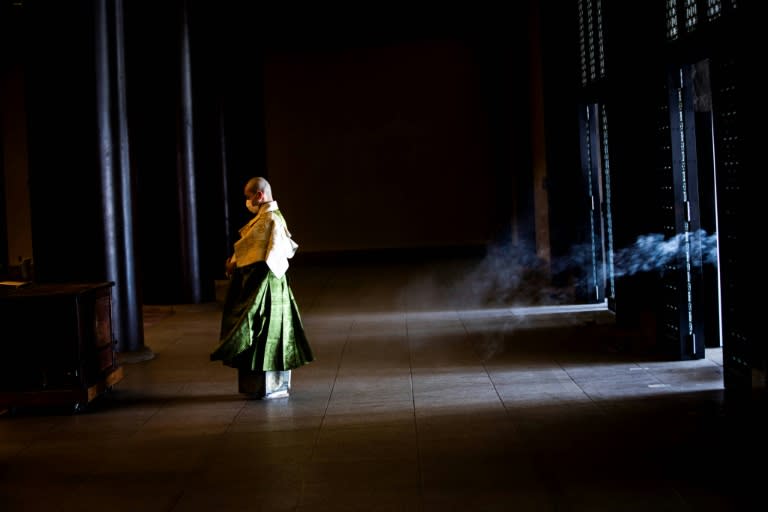The onslaught of the coronavirus pandemic, which left nearly two million people dead, caused Buddhist, Christian, Hindu, Jewish, Muslim and Sikh worshipers to seek comfort in prayer.
With places of worship often closed and mass meetings banned for fear of spreading infections, believers are turning to religious leaders or heaven for answers.
On a sidewalk in Mexico City, Enriqueta Romero looks after a small shrine in honor of Our Lady of Holy Death. The small altar, surrounded by candles, plastic virgins and statues of the reaper, is one of the last open prayer spaces in the city.
“There are many people outside the churches asking God not to forget us, asking God to get rid of this disease,” says Romero. “There are many needs.”
“It is thanks to her that I am here”, says the itinerant Gabriela Rangel, who seeks protection against the sanctuary. “She doesn’t leave us unemployed, she is always here to help us.”
Social detachment, blocking and restrictions are having a major impact on how worshipers around the world are practicing their faith.
In the ultra-orthodox city of Bnei Brak in Israel, going to the synagogue to pray three times a day was part of the community’s life. It is no longer allowed. “We try to improvise as much as possible,” says Rabbi Nechemia Bluestein, 49.
“A new thing that has never existed before has emerged – people no longer visit (for condolences), but rather call or send a letter of condolence”, he adds. “So people have to deal with their losses on their own and that is very difficult.”
– ‘It may just be fate’ –
At St. Sava Church in Belgrade, Serbian Orthodox deacon Mladen Kovacevic believes it is “easier for people who are deeply in the faith … to somehow find comfort and calm”.
“A priest can do a lot for his faithful,” he explains. Last year, the Serbian Orthodox Church lost its patriarch Irinej and Amfilohije, its leader in Montenegro, to Covid-19.
Support and mutual aid are what matter, says Gurpreet Singh Anand, president of The Central Gurdwara London, the oldest established Sikh place of worship in Europe.
“The role is taking a long time to talk to people,” he says. “For them, you know, being able to come and just visit the gurdwara is an important thing.”
Pakawat Jityomnant, an antique dealer in Thailand whose father died of illnesses unrelated to Covid, held an abbreviated funeral to minimize the risk of his father’s elderly friends becoming infected.
“Maybe it’s just fate,” he said. “Someone can live. Someone dies. And we still don’t know the final situation here about what is going to happen or how many people are going to die here.”
In Japan, Reikou Sasaki, a Buddhist priest at the Zojoji temple in Tokyo, believes in acceptance. “It is the important role of religion to help people maintain peace and serenity of mind when we are in this tragic situation,” he says.
On the banks of the Ganges River in India, Hindu pilgrims challenged the virus to gather at the religious festival Kumbh Mela, which regularly attracts millions.
“God will take care of the fears of the pandemic,” said Sanjay, who traveled from Delhi to do the sacred immersion in the river. “Humans do their duty and God does theirs.”
bur-ach / jm / har
